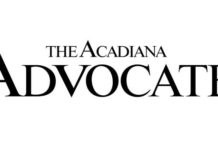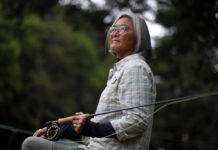Norman Pearson is about to turn 87 years old and has spent 40 of those years in the military. When his father died, Norman picked up farm work across the road from his home to help support eight siblings. Later he was contemplating going into manufacturing after he graduated, but decided to go into the Air Force instead. This was February of 1955.
Pearson always says he was, “Smiling when he went in, smiling when he came out.” After graduating with honors in the Jet Aircraft Maintenance course he attended, he toured the country training air and ground troops how to work with and use new airplanes. Eventually he settled in Lockport where he worked at Harrison Radiator as the fire chief, and weekends at the base. He was even called out of retirement to aid with the 9/11 tragedy in New York City.
And Pearson also served a year in Vietnam. He was there with his entire squadron, the 107th Fighter Interceptor Group from Niagara Falls, and when he came home, it was with them as well.
“We came home to good family supports,” Pearson said, noting there was a “Wives in Waiting” group in Niagara Falls.
“They got together clothes and toys for Christmas and sent it over to us over there,” he said. “And we went to an orphanage and gave them out.”
Pearson continues to live his life involved with veteran groups such as the Vietnam Veterans of America Chapter #268 and the Gasport American Legion. He said he doesn’t often see many young veterans.
Karl Hinterberger, who served from 1992-1997, on the other hand, sees them every day.
The Office of Veteran Services at Niagara University includes Hinterberger’s office, a storage room and a large lounge with computers and couches. It’s a private space which only veterans can unlock and while it isn’t heavily used, there are close to 10 regulars who will come and work in it for a few hours.
Hinterberger is the director of services, and said he’s available to his veterans at all hours of the night.
“I tell them,” Hinterberger said, noting bar closure hours. “If 4 a.m. comes and you need something – call me. It’s better than doing something stupid.”
Hinterberger also provides programs for the veterans to attend. He said he got his permanent position by bringing in a speaker named Bob Wieland, a double amputee who runs triathlons on his hands, who spoke to the veterans about suicide.
For a long time, the culture in the military was against sick-calls and against getting benefits, Hinterberger said.
When he left Bosnia with both knees blown out, Hinterberger said he was told to go to “the motor pool” by an officer where all the vehicles were, presumably to continue his work as a mechanic. Hinterberger said he would, then drove around the parking lot to go right to medical. Earlier, he’d been told by a Department of Defense civilian to make sure he got everything documented. That’s what he tells every one of his veterans today.
“It’s hard. I’ve bounced my head off the VA walls for years so I found out all the secret entrances, so I can kind of direct them where to go and what to say to make sure they’re getting the treatment they need,” he said. “But at the same time, about 80% or if not more veterans do not realize or utilize the benefits available to them.”
At the same time, Hinterberger also noted that young veterans are not reaching out to the traditional groups. For them, Hinterberger said, going to a veterans’ group is watching old people drink. They’re more likely to join motorcycle clubs, he said, and the ones that don’t drive motorcycles are also likely to isolate.
“There’s a common thing about veterans, which is ‘Well, there are other people …’,” Hinterberger said. “ ‘They’re missing arms,’ ‘They’re missing legs.’ ‘They need it more than I do.’ ”
“What they’re missing is that ‘You deserve it too,’ ” he continued.
Hinterberger said that a “motivational trigger” has yet to be found for vets coming home with problems like PTSD.
“A lot of them, because of PTSD, they have lack of interest, lack of joy, lack of motivation. It’s not stoic. It’s a disease!” he said. “Things they used to love, they’re now apathetic. It doesn’t do the same thing. and I find myself with the same kind of problems.”
Hinterberger said he’s enjoyed making fishing rods and he’d like to bring the group that he worked with, Project Healing Waters Fly Fishing, to NU to speak to his vets.
“I try to find stuff that is meticulous that requires a lot of focus to get right and making rods is one of them and it got me to where my mind would get back in balance,” he said.
Today, the VA is much better, Hinterberger said and noted that for every conceivable activity, a veteran can find something offered that caters to veterans through it. That includes educational benefits of more than $25,000 in tuition, and “yellow-ribbon schools” like Niagara University in which all tuition is paid. There are also services for homeless veterans to help pay rent and bills.
“The VA has improved 100%,” Hinterberger said. “A lot of veterans are still having a lot of problems getting their benefits — sometimes they’ll deny them right off the back just to deny them — but that used to be the normal procedure. They wanted you to give up or die. That’s the way it used to be.”
“But now it’s gotten so much better and there are so many more opportunities than I had when I got out,” he continued. “There’s so many different organizations that you can meet up with and be with your brothers and sisters and share your stories. That’s why I love my job. I don’t work. I just come here and talk to my veterans.”
Credit: Source link































